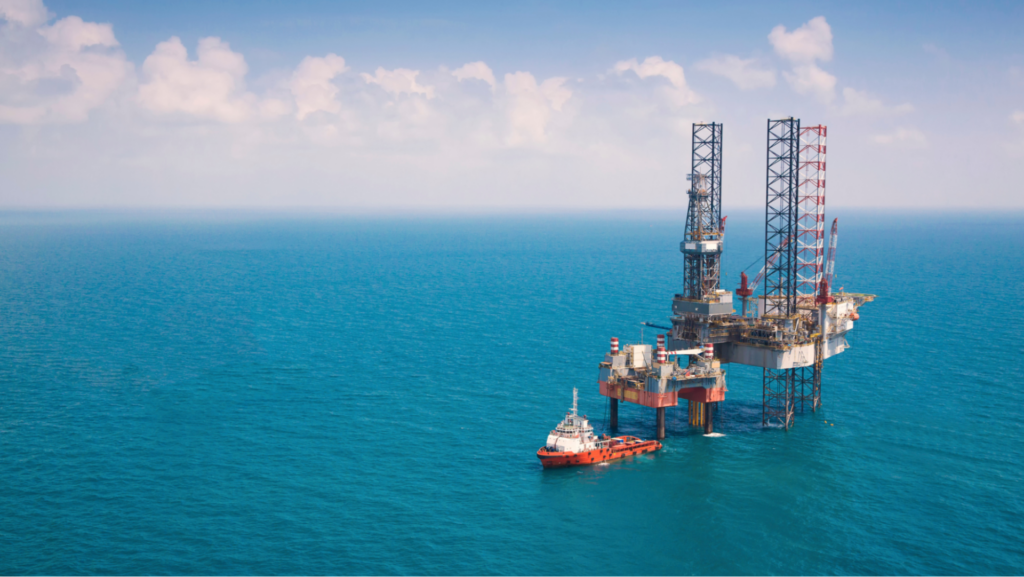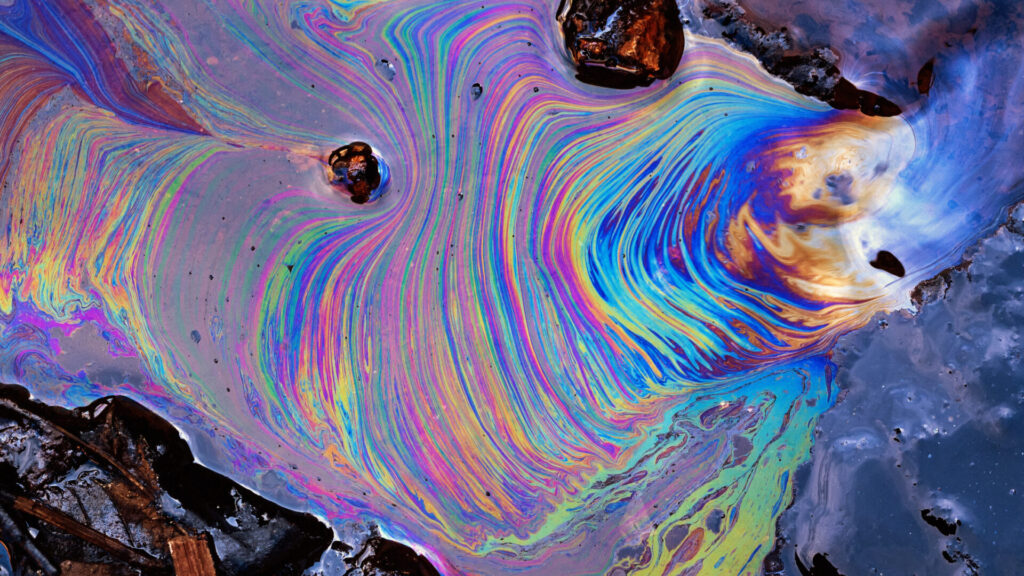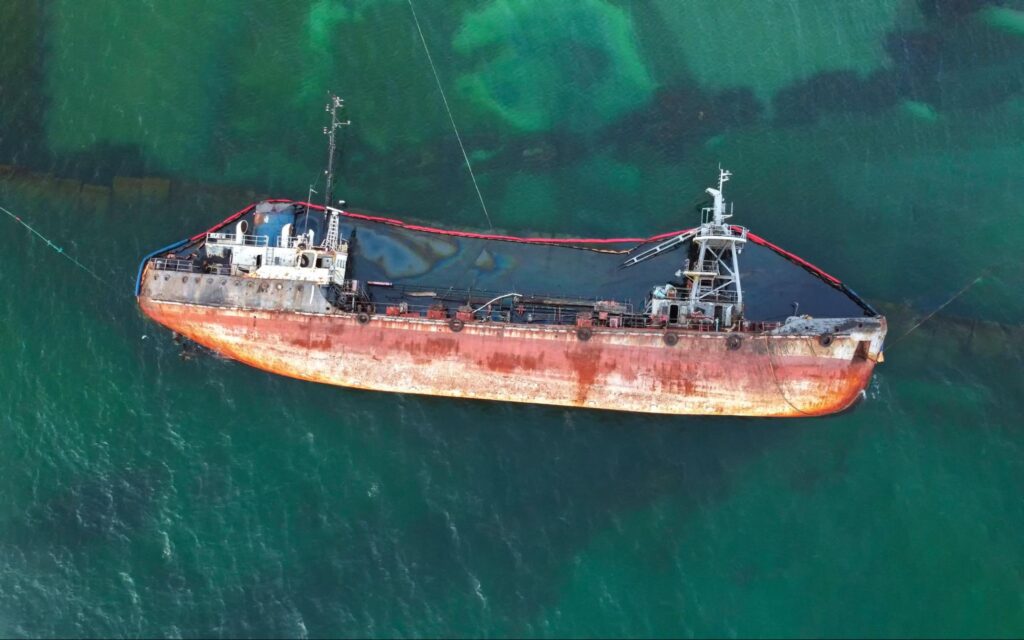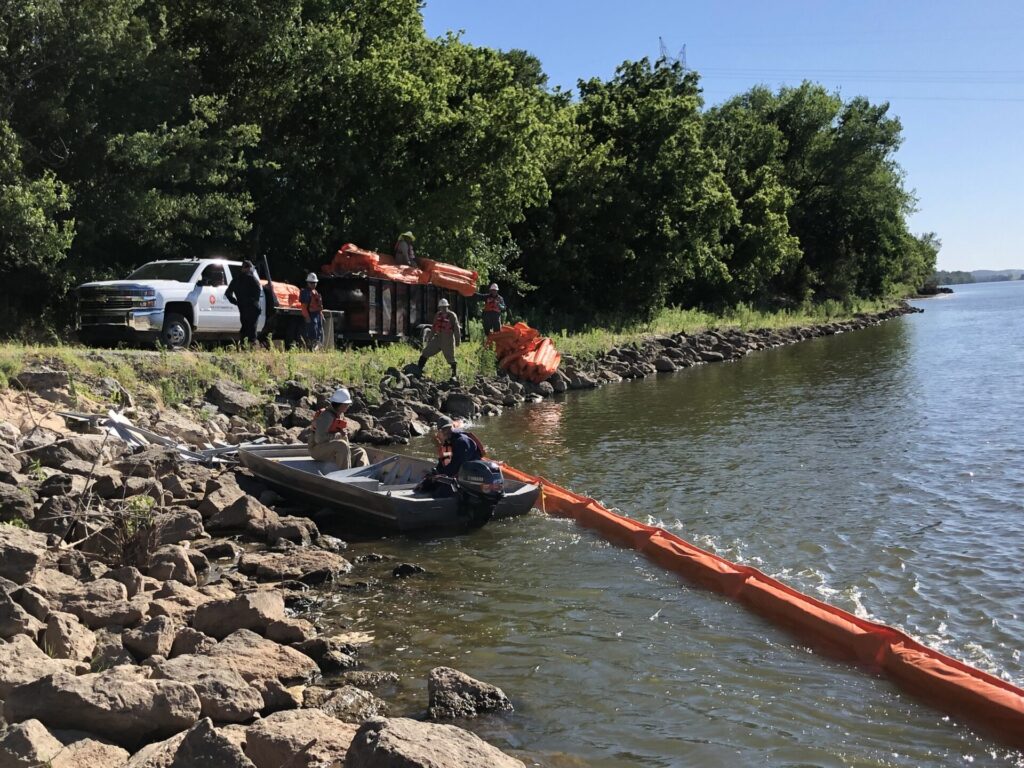What Causes Oil Spills?

Oil spills are a grave environmental concern with far-reaching economic and societal consequences. When oil is released into the environment, particularly in water bodies, it wreaks havoc on ecosystems, wildlife, economies, and human health.
An oil spill’s impact on wildlife can be catastrophic, especially without the right emergency response protocol. However, a clean-up response is a worst-case scenario.
There are many reasons why oil spills may occur. Understanding the causes can prevent future occurrences and help businesses stay prepared.
From accidents and intentional acts to even natural disasters, we’ll delve into all the possible causes of oil spills so that you can do your due diligence to prevent and prepare for oil spills accordingly.
Natural Causes
Despite what people think about oil spills, they are not always man-made disasters. There are actually a few ways in which natural causes can lead to oil spills:
Seepage from the Seafloor
Natural seepage from the sea floor can occur when hydrocarbons naturally migrate from underground reservoirs eventually reach the water’s surface. These seeps can be found in various locations, including the ocean floor, lake beds, or even on land.
Earthquakes or other geological events can also cause fractures in the Earth’s crust, allowing oil and gas to escape from underground reservoirs and reach the surface or water bodies.
However, these types of seeps typically happen deep down the underlying rock of the sea. It is therefore not common to see seepage from the seafloor create a concerning oil spill.
Volcanic Activity
Underwater volcanic eruptions can release oil and gas stored beneath the seafloor. The intense heat and pressure can cause hydrocarbons to escape and form oil slicks on the water’s surface, similar to the natural seeps mentioned before.
Above-ground volcanic eruptions can also generate solidified lumps of oil, known as tarballs or tar mats, which can be washed ashore and impact coastal ecosystems.
This, of course, is only common in areas where there are still active volcanoes above and below sea level.
According to the US Geological Survey, there are about 1,350 potentially active volcanoes worldwide, aside from the continuous belts of volcanoes on the ocean floor at spreading centers like the Mid-Atlantic Ridge. However, only about 500 of those 1,350 volcanoes have erupted at all throughout history.
In other words, while it’s possible for volcanic activity to cause oil spills, the likelihood of significant damage to the ecosystem, particularly where it is near humans, is relatively low.
Natural Disasters

Lastly, severe weather events like storms, hurricanes, and tsunamis can cause damage to oil infrastructure, leading to oil spills. High winds, strong currents, and rough seas can rupture pipelines, damage storage tanks, or cause vessels to run aground.
As global temperatures rise and concerns around climate change continue to become more dire, natural disasters that affect oil systems are the most pressing natural cause of oil spills. It is difficult to protect infrastructure from unexpected climate events.
Therefore, in these situations, government entities can and should partner with emergency oil response teams to be prepared in the worst-case scenario.

Accidental Spills
While natural causes are plausible reasons for an oil spill, Eos, a science magazine of the American Geophysical Union, notes that 90% of the world’s oil spills are caused by humans, not nature.
Here are some of the most common accidental, human-originating oil spill causes:
Shipping & Tanker Accidents

A very common cause of oil spills is collisions that happen during shipping and tanker accidents. These collisions between vessels, such as ships or barges, can damage their hulls, leading to oil leaks or spills.
Another common accident is when a vessel runs aground. This happens when there is no longer deep enough water to float a vessel, such as if it’s accidentally gone ashore, or is stuck on the bottom of a lake or other body of water.
When this happens, a ship or boat can rupture its hull, causing oil to be released into the surrounding environment.
Lastly, aging or poorly maintained vessels can experience structural failures, such as hull breaches or pipeline failures, resulting in oil spills.
Offshore Drilling Accidents

Drilling accidents such as blowouts or wellhead failures are another common cause of oil spills.
A blowout occurs when the pressure control systems fail during drilling, causing an uncontrolled release of oil and gas from the well. Blowouts can lead to significant oil spills and pose serious safety risks.
Blowouts and other oil rig accidents can also come with the risk of drowning since severe offshore drilling rig accidents can result in the rig itself collapsing into the sea.
Other oil rig accidents can be caused by weather, equipment malfunction, maintenance, or lack of safety equipment. Small explosions can lead to massive ones, causing oil rig injuries, traumatic brain injuries, spinal cord injuries, catastrophic health problems, or wrongful death.
Malfunctions or failures of wellhead equipment, such as blowout preventers, can result in the uncontrolled flow of oil from the well.
In both cases, offshore drilling accidents can cause oil spills as well as other injuries and loss destruction. It is therefore essential that oil companies and contractors remain diligent in their backup protocols and emergency response plans.
Pipeline & Storage Tank Failures

Pipelines and storage tanks can corrode over time, leading to cracks or leaks that result in oil spills. Inadequate maintenance and monitoring can exacerbate the risk of failures, meaning that any entity involved in oil infrastructure has the obligation to diligently observe its equipment over time.
In addition to corrosion, failures of valves, pumps, or other equipment associated with pipelines or storage tanks can also result in accidental releases of oil.
Accidents During Oil Transfer Operations
During the transfer of oil between vessels or between vessels and storage facilities, accidents such as equipment failures, human errors, or sudden shifts in cargo can cause spills.
Oil transfer through pipelines can also be disrupted due to ruptures caused by factors such as corrosion, ground movement, or construction-related accidents.
In both these cases, oil spill preparedness and prevention knowledge can also help make recovery and response go smoother.
Deliberate Spills
Lastly, you have deliberate spills. Unfortunately, whether it’s companies trying to save some dollars or full-on acts of war, many oil spills have occurred due to human greed and violence.
Illegal Dumping & Discharge

Some unscrupulous individuals or companies may intentionally dump or discharge oil and oily waste incorrectly to avoid proper disposal costs or regulations.
A major example is in 2016 when authorities in Brazil discovered that the state-run oil company Petrobras had been involved in a massive corruption scandal that involved illegal dumping of oil and toxic waste into the environment. It was revealed that millions of liters of oil and other hazardous substances were intentionally discharged over several years.
Another form of illegal dumping is called, “bilge water discharge.” This is when marine vessels intentionally discharge a mixture of oil, fuel, and water that accumulates in the lower compartments of ships. This discharge can contain oil contaminants that harm the environment.
Sabotage & Acts of War
Both terrorism and military actions can lead to oil infrastructure destruction that ultimately leads to oil spills.
Extremists may target oil infrastructure, such as pipelines, storage facilities, or offshore platforms, with the intent of causing environmental damage, economic disruption, or instilling fear.
During times of conflict or war, deliberate oil spills can occur as a strategy to hamper enemy operations, block waterways, or create environmental damage in enemy territories.
For instance, during the Gulf War in 1991, Iraqi forces deliberately released oil into the Persian Gulf as a military tactic to hinder the US-led coalition’s operations. They opened the valves of oil terminals and intentionally spilled oil into the sea, resulting in a massive environmental disaster, with an estimated 240-336 million gallons of oil being released.
Notable Oil Spills and Their Causes
Two of the most notable oil spills in history were the Deepwater Horizon oil spill in 2010 and the Exxon Valdez oil spill in 1989. Both of these were accidental spills that created catastrophic consequences for marine and coastal ecosystems.
The Deepwater Horizon spill occurred in the Gulf of Mexico. The oil spill was triggered by the explosion and sinking of the Deepwater Horizon offshore drilling rig. The rig was operated by British Petroleum. The spill started on April 20, 2010, and unfortunately, continued until July 15, 2010, about three months long.
It is estimated that approximately 4.9 million barrels (210 million gallons) of oil were released into the Gulf of Mexico, leading to contamination of water, damage to coral reefs, and significant harm to fish, birds, sea turtles, and marine mammals.
It also affected coastal communities, livelihoods, and tourism along the Gulf Coast.
The Exxon Valdez spill happened in Prince William Sound, Alaska. It occurred when the Exxon Valdez supertanker, owned by ExxonMobil, struck a reef, causing the rupture of its hull. The spill occurred on March 24, 1989. Approximately 11 million gallons (260,000 barrels) of crude oil were spilled into Prince William Sound.
The spill had devastating consequences for the once-pristine Alaskan ecosystem. It heavily impacted marine life, particularly sea otters, seals, seabirds, and fish populations. It also contaminated beaches, disrupted the food chain, and caused long-term ecological damage. The spill led to significant changes in oil spill prevention and response regulations.

Partner with ACME Environmental for oil spill prevention
As you can see, oil spills – no matter the cause – are no small thing. Both the environment and local communities suffer greatly without skilled emergency response. ACME Environmental is a certified OSRO, ready to respond 24/7, 365 days a year. Find out how ACME can help you be prepared in case of an emergency.
Want to Know More About ACME Environmental and Oil Spill Prevention?
Work with ACME to get an OSRO-approved emergency response team and learn more about oil spills by visiting our Oil Spill FAQ page.
Learn more about how oil spills affect wildlife and how ACME handles oil spill response.
View ACME’s products for more information about each.
Let ACME Environmental help you stay prepared. Contact us today for a consultation.
Want More Information on Oil Spills?
Here are some of our other articles:
Resources
Oil Spill FAQs – Introduction

